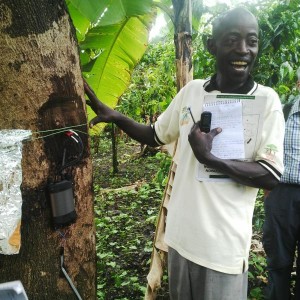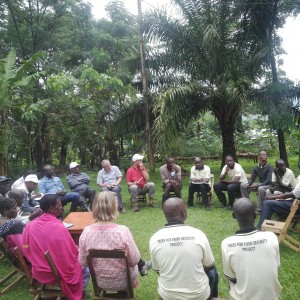Tokyo International Conference on African Development (TICAD) is a summit meeting on African development. The summit was initiated by Japan in 1993 and so far five conferences have been held in Japan. Its main objective is to promote high-level policy dialogue between African leaders and their partners as well as mobilize support for African-owned development initiatives. The 6th conference will be held in Kenya on 27-28 August at KICC and subsequent side events will take place prior to and during the main event at different venues. ICRAF is privileged to host two side events on 25-26 August.
1. The Future of Wood-Based Energy – 25 August 2016
Download program
2. Forest & Landscape Restoration for Food Security and Resilience to Climate Change – August 26, 2016
Download program
Further reading:
Njenga, M. Iiyama, R. Jamnadass, H. Helander, L. Larson, J. de Leew, H. Neufeldt, K. Röing de Nowina, C. Sunderberg. Gasifier as a cleaner cooking system in rural Kenya. Journal of Cleaner Production. 2016. doi:10.1016/j.jclepro.2016.01.039 (available under terms and conditions)
Mara ecosystem threatened by charcoal production in Nyakweri Forest and its environs: ICRAF Technical Brief 3:
[PDF] Policy solutions for sustainable charcoal in sub-Saharan Africa [PDF], a publication of the World Future Council.
[PDF] Mara ecosystem threatened by charcoal production in Nyakweri Forest and its environs
[PDF] Developing sustainable tree-based bioenergy systems in sub-Saharan Africa
Download presentation by Dr. Henry Neufeldt to Our Common Future Under Climate Change conference here.
Restoring forests: What constitutes success in the twenty-first century? By Douglass F. Jacobs, Juan A. Oliet, James Aronson, Andreas Bolte, James M. Bullock, Pablo J. Donoso, Simon M. Landhäusser, Palle Madsen, Shaolin Peng, José M. Rey-Benayas, John C. Weber. New Forests, 2015, Page 1.
—
Blogs:
Creating a ‘smokeless’ village in India
Demystifying the World’s Forest Landscape Restoration Opportunities
Landscape restoration talks at global innovations forum, GFIA 2015
Promoting early-maturing, oil-rich shea trees and holding off the charcoal threat
Experts’ advice on woodfuel governance in Burkina Faso
Trees for wood energy and land restoration
Towards a sustainable tree-based bioenergy sector in sub-Saharan Africa
From ‘energy poverty’ towards sustainable tree-based bioenergy
Charcoal production in sub-Saharan Africa can be sustainable
Keeping healthy and saving trees
Unpacking the evidence on firewood and charcoal in Africa
A burning issue: woodfuel, public health, land degradation and conservation in Sub-Saharan Africa.
Policy briefs (2015)
Developing sustainable tree-based bioenergy systems in sub-Saharan Africa:
Opportunities and challenges of landscape approaches for sustainable charcoal production and use
Developing sustainable tree-based bioenergy systems in sub-Saharan Africa
Working papers
See also:
http://www.worldagroforestry.org/
http://www.un.org/en/africa/osaa/partnerships/ticad.shtml
Atlas of Forest Landscape Restoration Opportunities: an online interactive map from WRI, the University of Maryland, and IUCN
Global Partnership on Forest Landscape Restoration
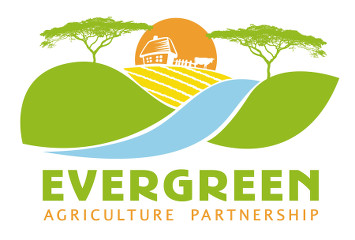

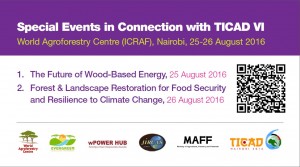
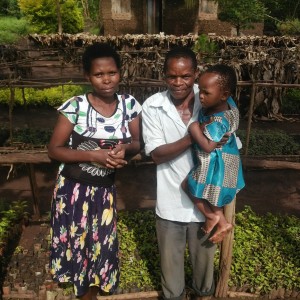
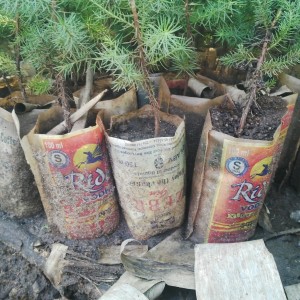
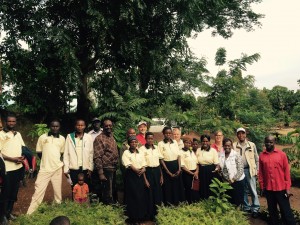
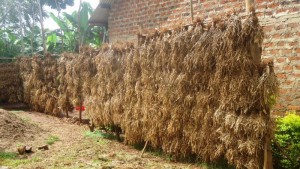 e them through a number of days. The poles are usually in demand after harvesting periods as they are used for drying beans. Moreover, the women get to make charcoal from the trees they have planted on their farms and earn income through the surplus. Members stated that they no longer have to necessarily rely on their husbands to meet all their household needs such as paying school fees for their children.
e them through a number of days. The poles are usually in demand after harvesting periods as they are used for drying beans. Moreover, the women get to make charcoal from the trees they have planted on their farms and earn income through the surplus. Members stated that they no longer have to necessarily rely on their husbands to meet all their household needs such as paying school fees for their children.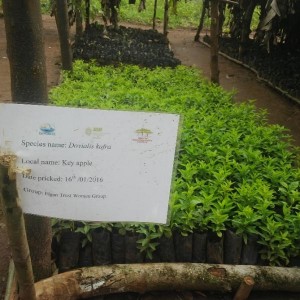 n themselves, not borrowing money from their husbands all the time as was the norm. “Courtesy of the Project, all members are smartly dressed, have neat hair and still have some income left to cater for personal needs. Moreover, since its women’s role to fetch firewood, it’s much easier now as we have them readily available in our farms hence don’t have to travel distances for the same,” stated Carolyne.
n themselves, not borrowing money from their husbands all the time as was the norm. “Courtesy of the Project, all members are smartly dressed, have neat hair and still have some income left to cater for personal needs. Moreover, since its women’s role to fetch firewood, it’s much easier now as we have them readily available in our farms hence don’t have to travel distances for the same,” stated Carolyne.